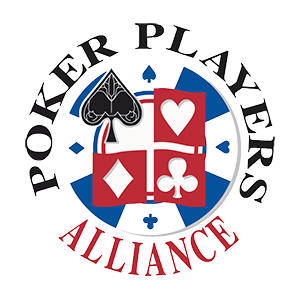
After issuing a plea over a month ago that funds were needed to continue their efforts, the Poker Players Alliance is falling extremely short of their fundraising goal as the closure date approaches.
As of today, the Poker Players Alliance has been able to raise $5385 in donations from supporters of the organization. That is far beneath what was requested over a month ago, $25,000, when the incoming President of the group Rich Muny pleaded for donations. With only four days left before their self-imposed deadline, it appears the Poker Players Alliance will not meet their targeted sum.
Muny issued the plea after the former President of the Poker Players Alliance, John Pappas, stepped down from the organization. In an interview prior to his departure, Pappas elaborated on the reasons for his departure, citing the lack of money that the group needed to achieve its desired goals. Muny also spoke out about the issue as he took over the group, stating to Pokerfuse that “the PPA has no paid staff as of January 1…I am an unpaid volunteer as well… continued viability is also dependent on continued volunteerism at the leadership ranks and within the poker community.”
If the Poker Players Alliance is to shut down, there is plenty of debate as to whether it will be a good or bad thing.
On the positive side, the Poker Players Alliance has been able to draw together the base of poker players – not the stars of the tournament poker world or the big money players per se, but those who enjoy the game on the grassroots level. Those numbers at one time totaled well over a million members, according to the Poker Players Alliance, and offered a large voice if motivated in the right direction.
Over the decade-plus existence of the Poker Players Alliance, there have been highlights that the group has achieved. On the base level, there have been some victories in courtrooms where the Poker Players Alliance has advocated. As the money has dried up for the group, however, the forays of the Poker Players Alliance as a court advocate have had to be cut down to the point they now are nearly non-existent.
Where the Poker Players Alliance has had more of an effect is on the legislative front. The Poker Players Alliance has been a key advocate for online poker in several legislatures across the States of America, with either Pappas, Muny or another advocate stepping up to testify in hearings in legislative committees. In some cases, that testimony – of course, along with other experts in the field – has given lawmakers extensive information that they would have otherwise not had. In other cases, the testimony from the Poker Players Alliance has prevented imposition of new bills or laws that would have permanently banned the game, either on the state or federal level.
There is plenty of ammunition for the naysayers of the Poker Players Alliance. One of the biggest arguments from those who disagree with the group is that the Poker Players Alliance has done nothing at all for online poker. The Unlawful Internet Gambling Enforcement Act (UIGEA) of 2006 was passed as the group advocated for its dismissal (the Poker Players Alliance contends it kept it from a total ban regarding online gaming).
After the initial “Big Three” – Delaware, Nevada and New Jersey – passed online gaming and/or poker regulations in 2013, many thought that there would be a tremendous charge towards other states passing some regulations. The reality was that no other state passed online regulations – despite many attempts in California, New York, Illinois, Michigan, Massachusetts and others – until last year, when Pennsylvania became the fourth state. Many believe that the Poker Players Alliance – by this point beset with dwindling funds (more on that in a minute) – didn’t advocate aggressively enough for more states to pass intra-state regulations.
It is also arguable that the Poker Players Alliance got too cozy with the very thing it was advocating for – online poker. At one point, such besmirched names as Chris Ferguson and Howard Lederer of Full Tilt Poker infamy were prominent members of the Board of Directors. There were also those who complained that the Poker Players Alliance concentrated TOO much on the legality of online poker rather than a more wide-encompassing approach. Their dependency on online poker for contributions – at one point, the online gaming industry was putting millions in the coffers of the Poker Players Alliance – seems to have been detrimental to the group as it now has no way to raise money from its membership.
There is plenty that would be lost should the Poker Players Alliance have to shut its doors. There is currently no other advocacy group for online gaming and/or poker in existence (the American Gaming Association, despite accepting membership from The Stars Group, GVC Holdings, Betfair and Paddy Power, is noncommittal on the subject), seriously limiting efforts to prevent any bans on the game or advocacy for new legislation. There also would no longer be a face for “the people” in the game, as Pappas was a very well-respected voice on the subject for publicity and presentation. And this is just the tip of that iceberg.
What will be the eventual outcome of the Poker Players Alliance? Do the players still want an active voice in the discussion regarding the legality of online poker? Or are they willing to let state and federal legislators decide? Or will the AGA step into the void as the new “voice” for online gaming and poker regulation? Plenty of questions remain as the fate of the Poker Players Alliance hangs in the balance.















